Your 32 Week Old Baby – Development, Milestones & Care

- A 32-Week-Old Baby’s Development
- A Thirty-Two Week-Old Baby’s Milestones
- Feeding
- Sleeping
- A 32-Week-Old Baby’s Care Tips
- Tests and Vaccinations
- Games and Activities
- Products That 32-Week-Old Baby Needs
- When to Consult a Doctor?
- FAQs
Can you believe your baby is growing so fast that he is almost eight months old? By now, your baby has probably started clapping his hands, crawling, and even picking up small objects. Waking up less at night or taking more naps may be signs that your baby is channelling his energy into growing. Your baby will be enchanted and challenged by the world around him; therefore, he will need you constantly and will not leave you for even a minute or two. His mobility means that as you go through your routine work, a little shadow will follow you all around. Keep reading to learn valuable insights and tips to navigate the joys and challenges of parenting a 32-week-old baby, helping you nurture their development and celebrate their achievements.
A 32-Week-Old Baby’s Development
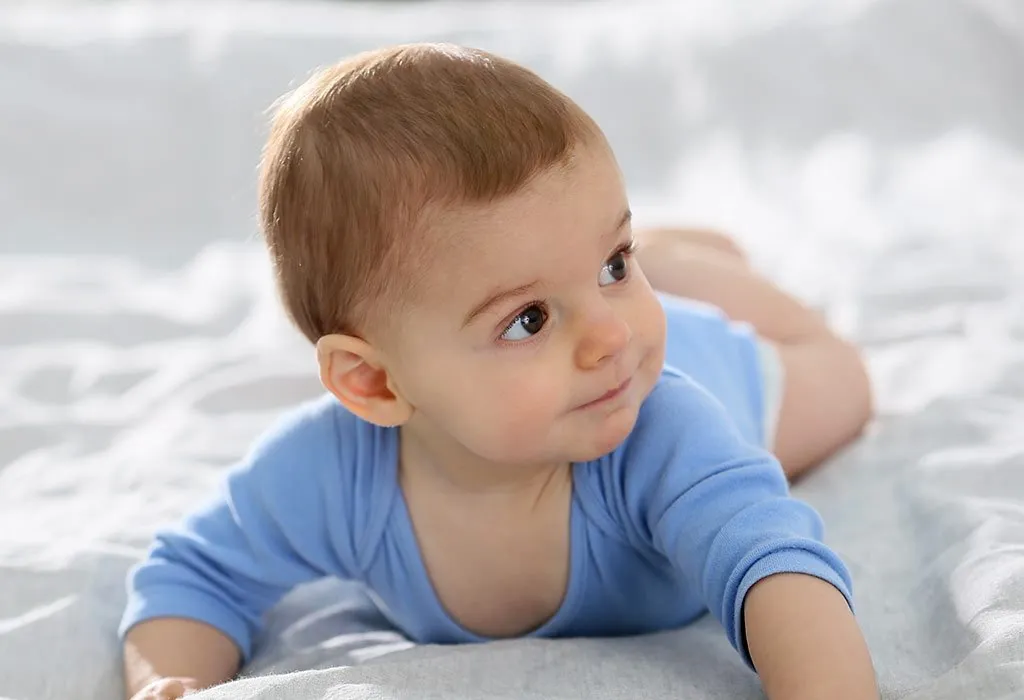
Babies between six and nine months also show suspicion when something unusual happens. Babies have no filter through which they can hide their emotions (suffering, pain, sorrow, anger). In addition, they have limited experiences overall, so they face many novel situations in which they display categorical fear. Your child will turn to you for comfort and reassurance in those moments. Babies may also gain a lot of body fat as there is a developmental stage (1).
Each day, he learns new ways of discovering his environment and starts to perfect his skills. You might notice that he is more resistant when you pick him up, dress him, or change his clothes. Instead of playing randomly, he wants to play with whatever and wherever his hand can reach; he focuses on interesting objects like pens, toys, shoes, kitchen utensils, mobile phones, etc. All these activities will help build your baby’s large and fine motor skills.
[Also Read: 8 Months Old Baby Development]
A Thirty-Two Week-Old Baby’s Milestones
Here is a summary of skills that are developed in 32-week-old babies—either now or in the near future. Keep in mind that these milestones may differ within a range of a few weeks, which is again normal.
- Dropping and Throwing: Your baby will be thrilled to discover that they have much better control over their hands and fingers. They can drop things for you to pick up and perhaps even throw things. This will not be a thrill for you! (4)
- Speech: By now, he may start saying “Mamma” and “Papa” and may also begin to wave his hand to say bye-bye.
- Emotional Development: Your baby may get more anxious if he doesn’t find you around. He may also be able to differentiate between familiar and unfamiliar people. He can now crawl hastily, grasp things with his thumb and finger, and try to put them into his mouth.
- Teeth: By now, two or more teeth may have appeared, which may increase the tendency to chew up things (6).
- Feeding: Baby may start holding things by himself, loving biscuits, boiled vegetables etc.
- Gestures: Gestures will be a part of his regular vocabulary by now. The baby will start using his hands, shake his head, or push you if he wants something.
[Also Read: 8 Months Old Baby Milestones]
Feeding
By now, breastfeeding would be a comparatively less painful experience. Even the discomfort and fear due to the arrival of his new teeth will be pain-free because when he actively takes the feed, his tongue will completely cover the teeth, which means the sharp teeth will not hurt your nipple. Now that he has his first teeth, he may explore new biting adventures! But don’t be afraid, and be assured that feeding is not a painful experience. Many ways help you eliminate being bitten by your little one.
Understand one thing, biting you is not at all done purposely to hurt you. While feeding, you may experience his teeth piercing, or even slightly denting, on your tender skin. One reason is that all the feeds are given in the same position so that you might develop a sore spot from the repeated pressure by his teeth. Therefore, you can alternate the positions in which you give feeds.
Another idea is to make him play with toys (plastic used for manufacturing toys should not be toxic) and make him eat chewable food that will reduce the edges of sharp teeth and relieve the pressure developed inside the teeth. Another way is to recognise his biting behaviour. This can be done by making a note of the way he takes the feed and observing the change in a pattern of sucking and taking him away promptly before he could bite you. If he is biting you, show your discontent and put him away from you. To make him understand, you will need to do this many times; as his memory is still developing, he might take time to understand the message.
Biting is again a sign of development; some babies bite reflexively at whatever comes into their mouths. Therefore, try introducing bottles, dummies, sippy cups, chilled carrots, cucumber or watermelon slices.
[Also Read: 8 Months Old Baby Food]
Sleeping
Now that he can use his newly developed physical motor skills, he will be rolling on the bed or floor, crawling or trying to stand on his own; he will keep practising it for hours and hours. These activities can shorten the happy hours’ sleep or may have vanished completely! For a 32-week-old baby, sleep is essential for his physical and mental growth; therefore, try to be consistent in his nap schedule for a proper routine of naps each day. Morning and afternoon naps are much needed; your baby should nap for at least half an hour. If he skips any of the naps, make him sleep early at night. There should not be any compromise for your baby’s sleep because good sleep will help with good physical growth and mental development (5).
[Also Read: 8 Months Old Baby Sleep]
A 32-Week-Old Baby’s Care Tips
As he grows, his motor skills get triggered, and he starts exploring new things and places. Now that you know about all the mischief he may begin to do, you may probably start worrying about his safety. You may try securing him from getting hurt by making your home safe. To make sure your home is safe, here are some tips:
- Make sure that the corners and edges of your furniture are cushioned so that when your baby falls while he is learning to walk, he won’t get hurt when he hits his head on the table.
- The cabinets and drawers are always locked.
- The doors of your toilet and rooms are always closed in a way that your baby cannot open.
- Outlets of the plug should be covered so that your baby can’t get electrocuted.
Tests and Vaccinations
By now, you must be aware of the important and mandatory vaccinations for growing babies to fight the harsh environment. Therefore, to remind you again, at eight months, your baby would need a Hepatitis B and IPV booster (2).
Games and Activities
You can introduce different activities to help him develop his motor skills and strengthen his muscles. Teach him to stack objects using colourful plastic cups. Now that your baby has adapted to sitting, using toy cars or other wheeled toys will help him enjoy and play around. Hide under the curtains and ask him to uncover you, or hide objects under a towel and encourage him to uncover them. Such activities will strengthen his concept of permanence (7).
[Also Read: Toys for 8 Months Old Baby]
Products That 32-Week-Old Baby Needs
As your baby approaches 32 weeks, their mobility and curiosity are growing rapidly. Here’s an essential product to consider for keeping your little one safe:
- Outlet Covers: At this stage, your baby might start scooting or crawling, making it crucial to protect them from electrical hazards. Outlet covers are essential for baby-proofing your home before they become mobile, ensuring a safer environment for your growing explorer. They block access to electrical outlets, preventing potential accidents.
When to Consult a Doctor?
Watching your little angel grow is an enthralling experience, but analysing how he is developing will help you overcome the persistent fear for his well-being. Always remember that spotting the delay in your baby’s development and growth will help make a better diagnosis. Therefore, if your 32 weeks baby is getting fussy, or you see signs like stiff muscles, does not laugh with squealing sounds, does not exhibit any sign of affection, is sensitive to light, doesn’t bear weight on legs or is unable to sit even with support, doesn’t respond to his name, doesn’t play any games, doesn’t recognise familiar people, then consult a paediatrician for early intervention.
FAQs
1. How can I support my baby’s development at this stage?
Engage in interactive play, provide a variety of toys that promote sensory exploration, and encourage tummy time to strengthen their muscles. Reading to your baby and talking to them also fosters language development.
2. When should I start baby-proofing my home?
It’s recommended to start baby-proofing your home before your baby becomes mobile, ideally around this age. Install safety gates, outlet covers, and secure furniture to prevent accidents as they begin to crawl and explore.
3. How can I help my baby with teething discomfort?
Consider offering chilled teething rings, gently massaging their gums with a clean finger, or providing cold, soft foods if they’ve started solids to soothe teething pain. Always consult your paediatrician for appropriate options (3).
Every child is different and will develop at their own pace. Some children may reach milestones earlier, while others may take a bit longer. This is all part of the beautiful journey of parenting. Be patient and enjoy this time with your baby as he explores and adapts to new people, environments, and conditions. Cherish these moments, they are precious!
References/Resources:
1. Child Development Guide and Milestones: 7 to 9 Months; Children’s Hospital of Orange County; https://choc.org/primary-care/ages-stages/7-to-9-months/
2. Bracho-Sánchez. E; Vaccines Your Child Needs by Age 6; American Academy of Pediatrics; https://www.healthychildren.org/English/safety-prevention/immunizations/Pages/Your-Babys-First-Vaccines.aspx
3. Tips for helping your teething baby; NHS; https://www.nhs.uk/conditions/baby/babys-development/teething/tips-for-helping-your-teething-baby/
4. 7-9 Months Milestones; Pathways; https://pathways.org/growth-development/7-9-months/milestones/
5. Infant Sleep; Stanford Medicine Children’s Health; https://www.stanfordchildrens.org/en/topic/default?id=infant-sleep-90-P02237
6. DiMaggio. D, Cernigliaro. J; Baby’s First Tooth: 7 Facts Parents Should Know; American Academy of Pediatrics; https://www.healthychildren.org/English/ages-stages/baby/teething-tooth-care/Pages/Babys-First-Tooth-Facts-Parents-Should-Know.aspx
7. 7-9 Months Games; Pathways; https://pathways.org/growth-development/7-9-months/games/#Week%2032
Previous Week: 31 Weeks Old Baby
Next Week: 33 Weeks Old Baby
Was This Article Helpful?
Parenting is a huge responsibility, for you as a caregiver, but also for us as a parenting content platform. We understand that and take our responsibility of creating credible content seriously. FirstCry Parenting articles are written and published only after extensive research using factually sound references to deliver quality content that is accurate, validated by experts, and completely reliable. To understand how we go about creating content that is credible, read our editorial policy here.







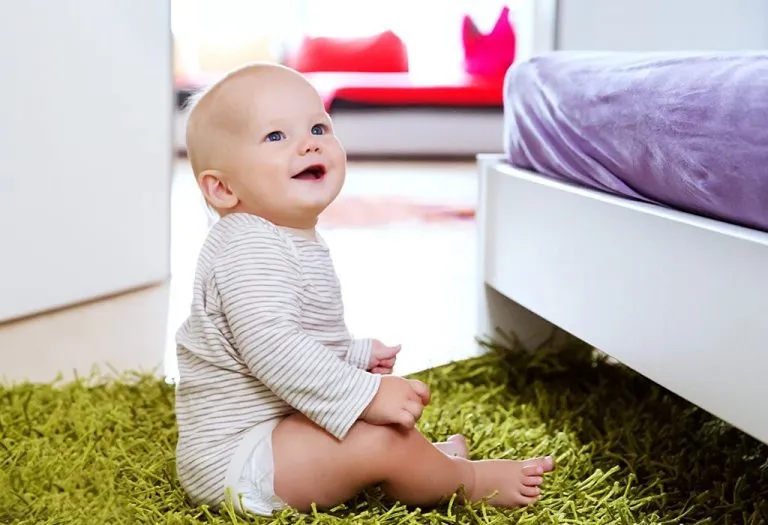
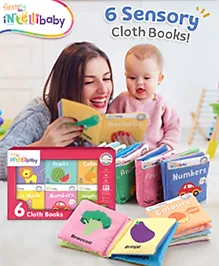
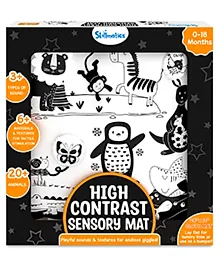
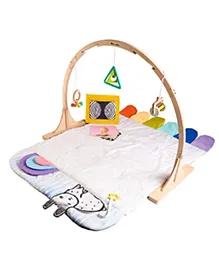
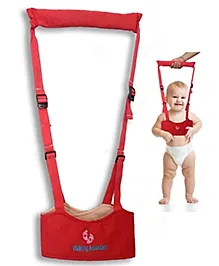

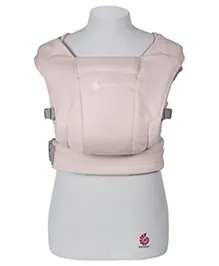
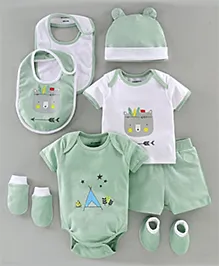
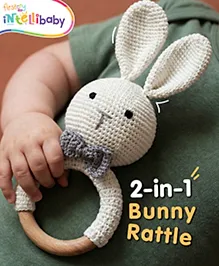
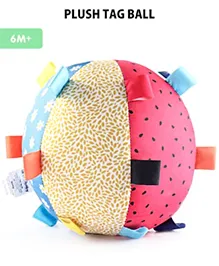
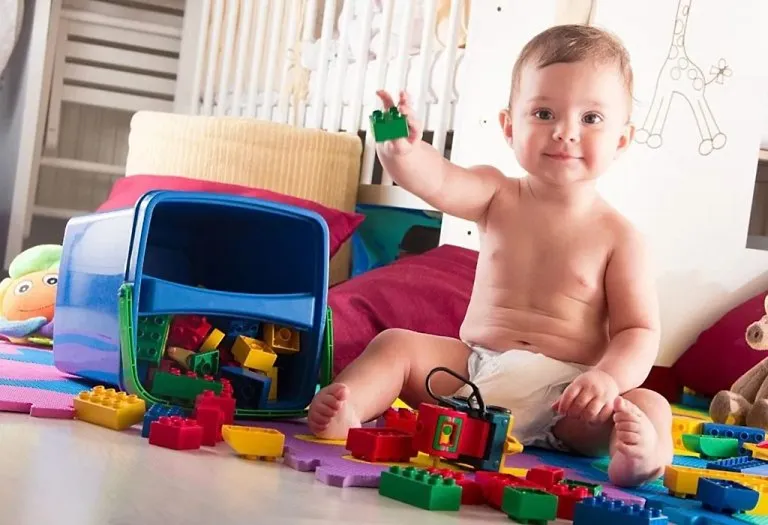

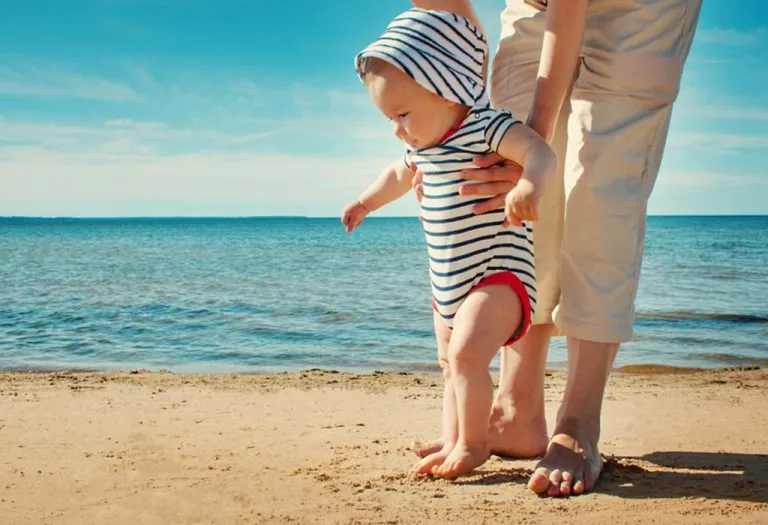
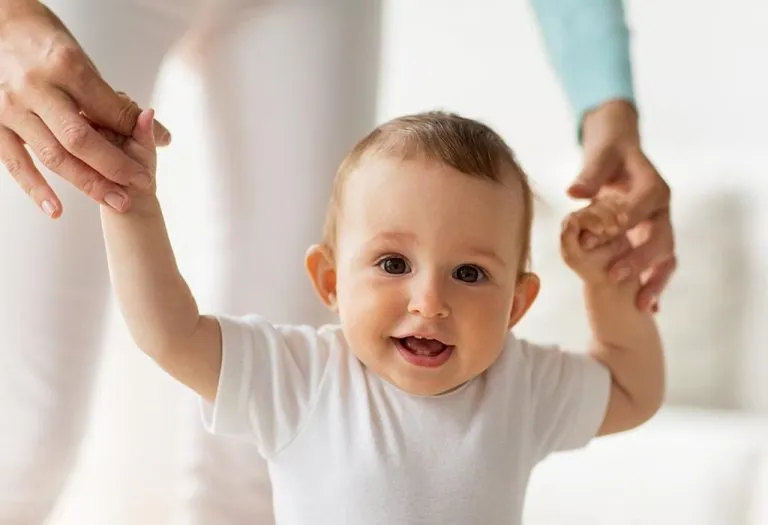
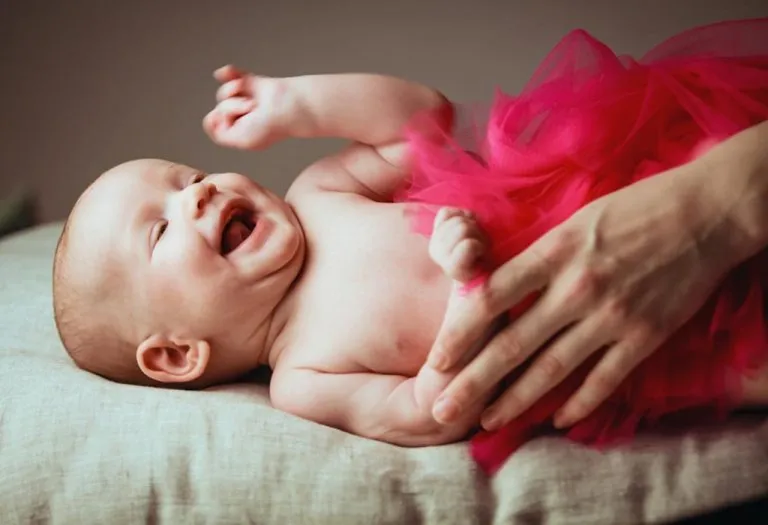


.svg)


















